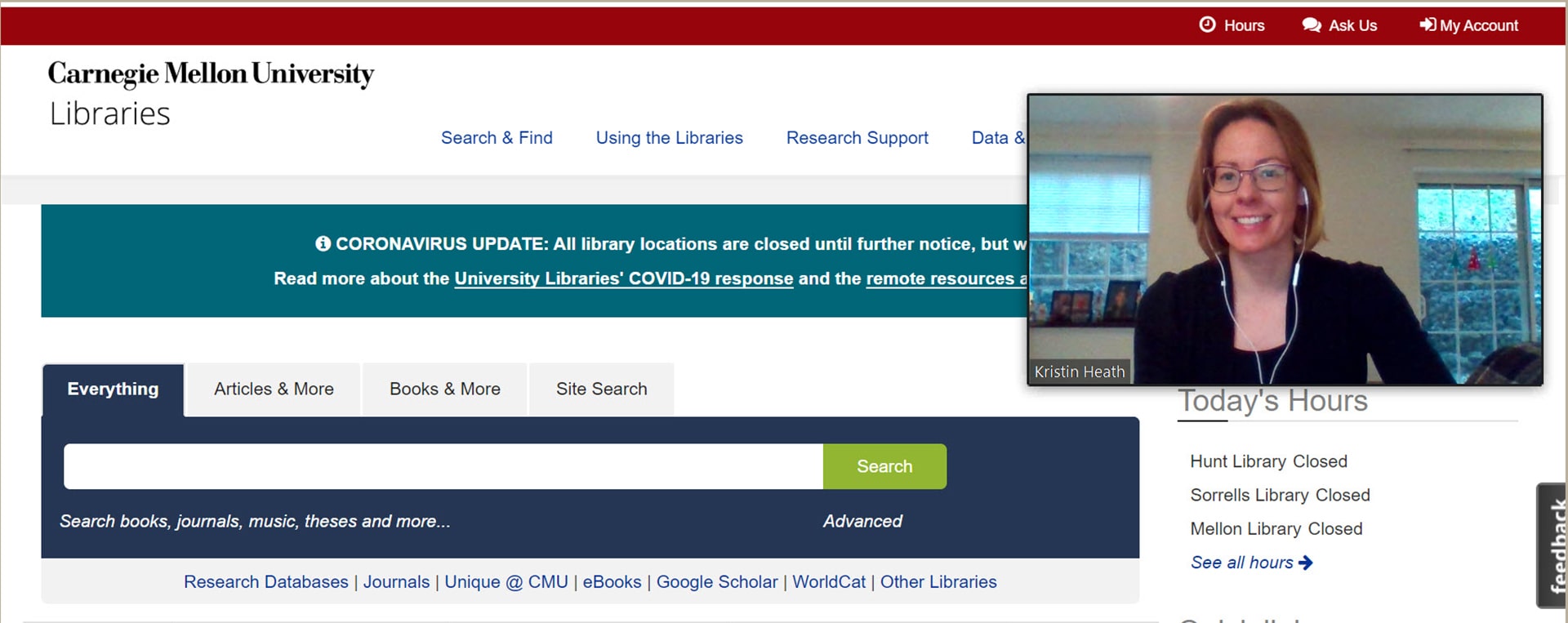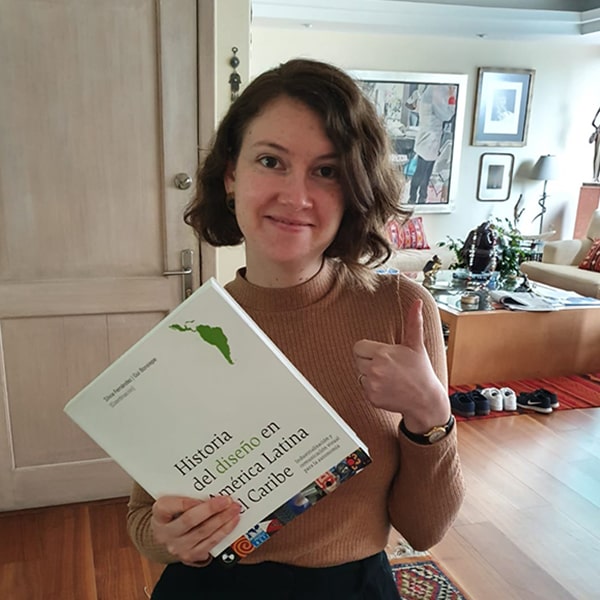Never Remote: Libraries Continue to Connect Community with Resources
Working on her dissertation in Mexico City, Sofía Bosch Gómez, a doctoral student in Carnegie Mellon University's School of Design, needed access to the book, "Historia del diseño en América Latina y el Caribe," a central resource for her Ph.D. research in transition design. But, there was a problem. Due to COVID-19, she had returned to her hometown — 2,300 miles from Hunt Library — and couldn't find a digital version. Gómez reached out to Design Librarian Jill Chisnell to request assistance finding the ebook title.
Chisnell assisted Gómez using a new process the University Libraries recently introduced to support requests for print-only materials. Under the process, when librarians receive a request for an item that is only available in print, they log the requester's contact information in a secure spreadsheet and order a book from an approved book vendor to ship directly to the user. The user is then responsible for bringing their item to a CMU library location when it reopens so that the resource can be added to the collection.
The initiative is one of many new activities rolled out by the Libraries since the transition to remote instruction to ensure that the university community has uninterrupted access to necessary resources for the rest of the semester.

Music Librarian Kristin Heath recently provided real-time instruction to musicology students.
"The move online due to COVID-19 not only affected classes but the way we obtain items for research as well," wrote Kim Dolan, interim head of Acquisitions in a blog post. "With the library closed and no one here to receive items, we asked ourselves, 'What can we do to accommodate our faculty and get them the resources they need as quickly as possible?'"
Pivoting quickly to scan print materials, move office hours online, and consult on copyright issues — among many other tasks — the Libraries' responsive actions minimized disruptions to the teaching, learning and research mission of the university during this rapidly changing time.
In recognition that users would not be able to return items while locations are closed, due dates for all 4,133 checked out items were extended.
The Libraries also curated a list of free and expanded resources from publishers and have scanned 1,535 print pages in response to requests from the newly created Textbook Help mailing list (lib-textbookhelp@lists.andrew.cmu.edu), created to provide digital course reserve and textbook alternates for students who were unable to retrieve materials from their dorm rooms.
Subject specialists have shifted their activities to Zoom to continue to connect faculty, staff and student users with resources in the virtual space. Business and Economics Librarian Ryan Splenda held a Zoom workshop entitled "Company & Industry/Market Research Strategies and Resources" for members of University Advancement and Music Librarian Kristin Heath provided real-time instruction to musicology students.
Although the Libraries' copy remains locked in the Fine and Rare Book Room of Hunt Library, Curator of Special Collections Sam Lemley taught Shakespeare's First Folio to Professor of English Christopher Warren's Shakespeare class using digitized images from the Folger Shakespeare Library.
"This forced experiment in looking at old books on a scattered network of screens is an example of the kind of collections-focused instruction that remains possible, even during mass quarantine," Lemley wrote in a blog post. "While it's impossible to simulate the heft and presence of the First Folio, a high-resolution digital surrogate offers unique opportunities and affordances; this is a book that rewards close looking."
These efforts and more are captured in a series of blog posts on the Libraries website collected under the motto, "Online but Never Remote." The phrase was coined by the staff and faculty of the Carnegie Mellon Qatar Library as an acknowledgment that even though the employees who make up the Libraries' workforce are distributed, they are not inaccessible.
The series, which is regularly updated, provides snapshots of the many Libraries activities that continue support Carnegie Mellon during social distancing.
"As we've moved from our physical spaces to provide uninterrupted support for our community in the digital space, we've done so with the benefit of a strong digital infrastructure and an increased investment in online resources" said Dean of Libraries and Director of Emerging and Integrative Media Initiatives Keith Webster. "By connecting our faculty, staff and students with the solutions they need during this time, we hope to do our part to reduce stress for our community."
As for Sofía Gómez, her print book reached her in 10 days, allowing her to continue to draft her dissertation.
"This is one of the kindest and most caring actions I have experienced in my academic years, more so in these difficult and tumultuous times," Gómez said.
